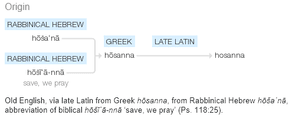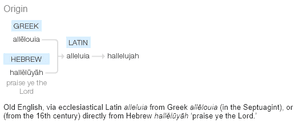I noticed that in English, the J in Hallelujah is pronounced as a Y.
I cannot think of another English word where J is pronounced as Y.
Just thought it was interesting (from a linguistic perspective).
I cannot think of another English word where J is pronounced as Y.
Just thought it was interesting (from a linguistic perspective).


